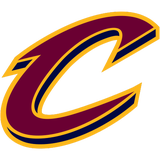
The Biggest X-Factors Of The NBA's Stretch Run
The NBA is now in immersed in its most important stretch of the regular season. Over the next eight weeks, contenders will take their final form, adding veterans and shoring up their rotations as the playoffs approach. While it’s already clear who the league’s top dogs are so far this season, some players outside of the spotlight could end up having a major impact on their team’s fates.
Here are four X-factors to keep an eye on during the stretch run of the NBA's regular season.
Serge Ibaka, Raptors
Ibaka was the biggest name moved at the deadline aside from DeMarcus Cousins. And unlike Cousins, Ibaka was sent to a team with the hopes of making the Finals. Ibaka is the kind of player the Raptors have needed for years—a big man with a shooting stroke who can also defend the paint. The former Thunder forward’s versatility will be very important for Toronto—Ibaka can play the four next to Jonas Valanciunas without mucking up the halfcourt offense, and he can slide to the five next to Patrick Patterson for spacey lineups that can still defend.
The issue will be if Ibaka can return to the defensive form that made him a menace in Oklahoma City. While his outside shooting has been reliable, Ibaka has been iffy on the other end of the court this season. His 0.51 defensive RPM is No. 41 among power forwards. Playing for a team that’s less of a mess in the frontcourt could help Ibaka, who was stuck playing in some odd combinations with the Magic.
Ultimately, if Ibaka’s rim protection catches up with his defense, the Raptors should have a lot more positional flexibility when playing their East rivals, and Toronto could even have a chance to overtake Boston in the East.

J.R. Smith, Cavaliers
With Kevin Love out for the foreseeable future, Smith could provide a much-needed boost for the defending champs. The sharpshooting guard has been out since Dec. 20 after undergoing surgery on his thumb, and he could return sometime around mid-March. Smith struggled to start the season, and we haven’t seen the real J.R. since last June’s Finals. It won’t be easy after surgery, but if Smith can find his shooting stroke, the Cavs could become explosive once again.
In Smith’s absence, Iman Shumpert has had the second-best three-point shooting season of his career, and Cleveland also added Kyle Korver for more punch from the outside. The rotation will be crowded on the wing, but a lineup with Kyrie Irving, LeBron James, Love, Smith and Korver could be hilariously difficult to defend come playoff time. And while Smith’s shooting prowess is well documented, his off-the-dribble game is a little more polished than the rest of Cleveland’s wings, which could help extinguish LeBron’s playmaker concerns.

Smith is Cleveland’s most well-rounded wing (non-LeBron category) when healthy, and the Irving-Smith-James-Love-Tristan Thompson lineup absolutely blitzed opponents last season. Getting their best group back together would be no small achievement for the Cavaliers.
Doug McDermott, Thunder
Tthe Thunder have struggled for years to find a fifth player to out their lineups who doesn’t have a glaring deficiency waiting to be taken advantage of. From Derek Fisher’s waning athleticism to Kevin Martin’s defense and now to Andre Roberson’s shooting, the Thunder have often been one role player short of taking the burden off their stars.
OKC’s latest hope to help fill that void is McDermott, who was acquired at the deadline along with Taj Gibson. McDermott fills a clear need on the perimeter, as the Thunder desperately need his career 39.5% three-point shooting. Russell Westbrook’s one-man show has been fun to watch, but it’s hard to imagine OKC going very far with that heavy of load on one player. Does McDermott drastically change the Thunder’s ceiling? Definitely not. But it’s possible he can swing a playoff game or two, simply by hitting threes that previously weren’t an option for the Thunder, or by giving Westbrook even more space to operate in the paint.
It will be incumbent on McDermott however to make himself more of a complete player than Thunder wings of the past. His defense is an issue—who would McDermott guard on the Warriors?—but OKC has to be hoping that McDermott is young enough that there is still room for improvement.

Marcus Smart, Celtics
Smart epitomizes the classic NBA trope of, “I hate that guy, but I would love him if he were on my team.” The young guard is a key cog in the Celtics' machine, and he has a knack for making the right play at the right time. For all of Smart’s shooting woes—he’s often ignored on the perimeter, where he shoots 30% from three—Boston’s offense doesn’t really suffer when he’s on the court. In fact, the C’s offensive rating is 0.2 points better with Smart on the court. Meanwhile, Smart’s defense is extremely valuable, as Boston’s defensive rating slips from 106.7 to 113.9 when Smart hits the bench.

All of this makes Smart such a complicated player. Let’s not dive into the contract stuff this time around, but I’m really curious to see how valuable Smart is come playoff time. Will his lack of shooting finally catch up to him when postseason contests slow down to a halfcourt grind? Smart isn’t a one-dimensional player, but we’ve seen guys like him get schemed out of playoff series in the past because of an obvious weakness in their game. On the other hand, Smart now has nearly a season full of evidence to show he can impact the game even when he’s not connecting on threes.
If Smart—and Boston’s other cavalcade of role guys—can maintain their effectiveness headed into the postseason, then the Celtics will have been wise to avoid making a big move at the trade deadline.


